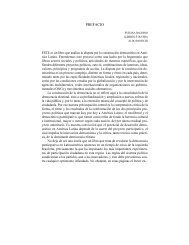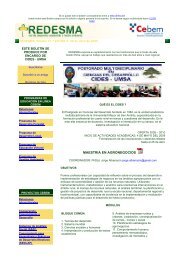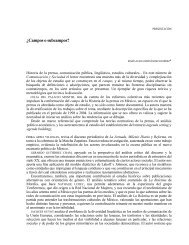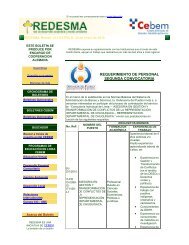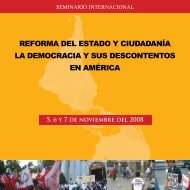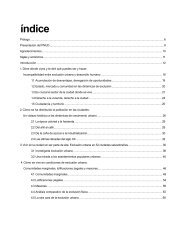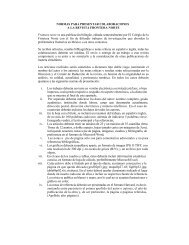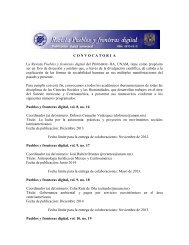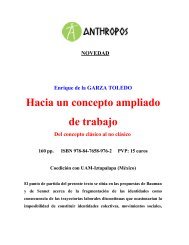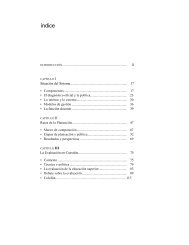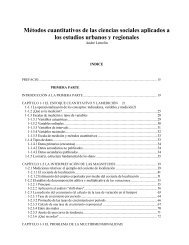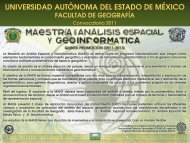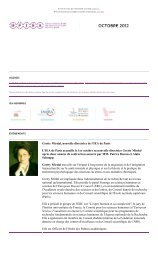RC21 Call for Papers XVII ISA World Congress of Sociology ...
RC21 Call for Papers XVII ISA World Congress of Sociology ...
RC21 Call for Papers XVII ISA World Congress of Sociology ...
- No tags were found...
Create successful ePaper yourself
Turn your PDF publications into a flip-book with our unique Google optimized e-Paper software.
the meltdown <strong>of</strong> finance generating hardships or relief <strong>for</strong> cultural and knowledgeensembles or perhaps even new opportunities <strong>for</strong> development? Is support <strong>for</strong> thecreative sector increasing, as public entities perceive new imperatives to diversify theeconomic base? Is crisis altering how policy makers perceive and value particularsegments within cultural production chains? Are cities from outside the neoliberalheartland now supplying policy models? What now should theorists make <strong>of</strong> thecultural/creative economy? Is it an epiphenomenon <strong>of</strong> over-inflated finance or is it takingon a more ‘basic’ position in cities as a fully-fledged advanced producer service?4. Cities and the Housing Boom/Bust: Joint Session with RC43 (Housing)Manuel Aalbers (University <strong>of</strong> Amsterdam, THE NETHERLANDS)m.b.aalbers@gmail.comKen Gibb (University <strong>of</strong> Glasgow, UK) k.gibb@socsci.gla.ac.ukHousing markets are highly dependent on the economic per<strong>for</strong>mance <strong>of</strong> cities. Yet, localhousing market boom/bust is shaped not only at the city level, but also at the nationaland increasingly as the financial crisis <strong>of</strong> 2007-2009 makes clear at the global level.Local, national and global factors interact to produce housing booms/busts. A housingboom may be seen as a sign <strong>of</strong> economic vitality <strong>of</strong> a city, but also implies anaf<strong>for</strong>dability crisis <strong>for</strong> large parts <strong>of</strong> the urban population. A housing bust may beconnected to an economic downturn and may result in redundant housing in one cityand only a pause in increasing house prices in another.Possible topics <strong>for</strong> this session include, but are not limited to:The local politics <strong>of</strong> housingExamples <strong>of</strong> housing boom/bustAnalysis <strong>of</strong> how local, national and global factors interact in shaping housing marketsLocal housing effects <strong>of</strong> the global financial crisisBooming neighbourhoods in a busting cityBusting neighbourhoods in a booming cityThe real estate network as a growth machine5. Sustainability and Learning Communities, Cities and RegionsAlun Morgan (London South Bank University, UK) morgana@lsbu.ac.ukJesus Blas Vicens Vich (University <strong>of</strong> Barcelona, SPAIN) jvicens@ub.eduThe challenge <strong>of</strong> achieving sustainability in the twenty-first century will demand,amongst other things, new styles, and even systems, <strong>of</strong> participatory governance andcivic engagement across all spatial scales but particularly at the local scale. Thissimultaneously demands the development <strong>of</strong> new structures, practices and styles <strong>of</strong>governance coupled with the fostering <strong>of</strong> a more engaged and in<strong>for</strong>med populace or‘civic society’ which is willing and able to participate fully in appropriate decision making<strong>for</strong> sustainable development. This is crucially a matter <strong>of</strong> education and learning acrossall spheres, phases and sectors. The broad notion <strong>of</strong> ‘learning communities, cities andregions <strong>for</strong> sustainable development and global citizenship’ can be seen as powerful<strong>for</strong>mulation characterised by concepts, approaches and tools currently emerging at theinterface between participatory approaches to local/regional planning and globallyaware place-based education. It is, furthermore, a <strong>for</strong>mulation which will involve the3



